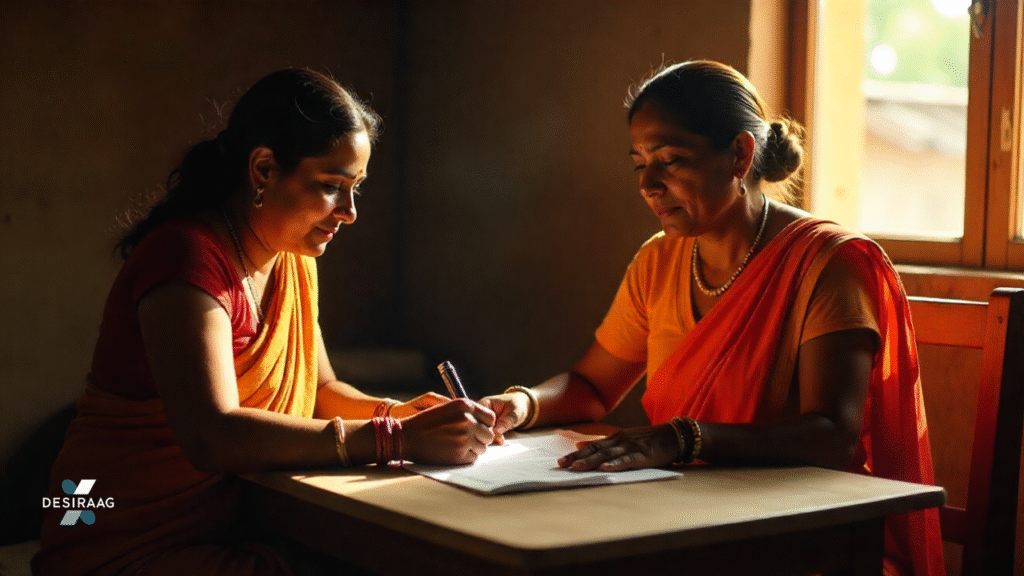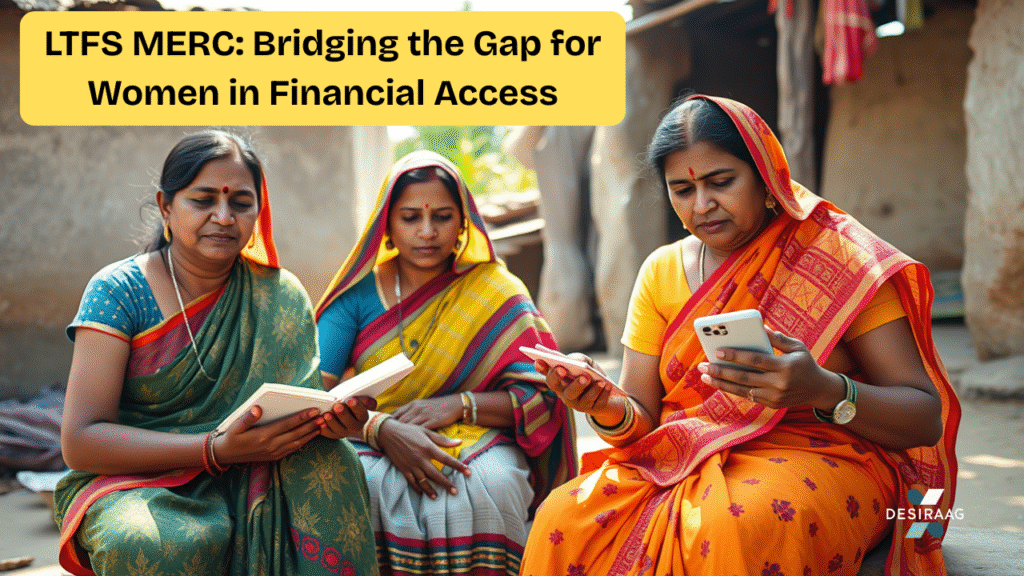Financial independence is one of the most powerful tools for women’s empowerment. Yet, many women across India still face barriers to accessing credit, savings, and financial resources. To address this challenge, L&T Financial Services (LTFS) introduced MERC – Micro Enterprise Rural Credit, a structured program designed to create opportunities for women in underserved areas.
LTFS MERC not only provides loans but also acts as a platform that empowers women with financial knowledge, entrepreneurial skills, and a pathway to sustainable growth. By focusing on inclusivity, this initiative is helping bridge the gender gap in financial access.
What is LTFS MERC?
LTFS MERC (Micro Enterprise Rural Credit) is a financial inclusion initiative by L&T Financial Services. It aims to provide small-ticket loans, financial training, and credit opportunities to women, particularly in rural and semi-urban areas.
Key Features of LTFS MERC:
- Micro Loans: Loans offered in small amounts to suit rural women entrepreneurs.
- Group Lending Model: Encourages collective responsibility and peer support.
- Capacity Building: Financial literacy and training sessions included.
- Inclusive Approach: Designed especially for women who are often excluded from traditional banking.
Why LTFS MERC Matters for Women

Women in rural India often rely on informal sources of credit, which come with high interest rates and exploitative practices. LTFS MERC bridges this gap by offering structured, affordable, and reliable financial services.
Also Read
Impact Areas:
- Entrepreneurship – Helps women start small businesses like tailoring, dairy farming, or vegetable vending.
- Household Empowerment – Improves decision-making power within families.
- Community Development – Encourages women to form groups and support each other.
- Financial Literacy – Builds awareness about saving, borrowing, and repayment.
LTFS MERC: At a Glance (Table Format)
| Aspect | Details |
|---|---|
| Full Form | Micro Enterprise Rural Credit |
| Introduced by | L&T Financial Services (LTFS) |
| Target Group | Women in rural and semi-urban areas |
| Loan Type | Microfinance (small-ticket loans) |
| Model | Group-based lending |
| Support Provided | Loans + Financial literacy training |
| Goal | Financial inclusion, women empowerment, and entrepreneurship |
How LTFS MERC Works
The process is designed to be simple and user-friendly, especially for women with limited exposure to formal banking.
- Identification of Beneficiaries
- Women from rural and semi-urban areas are shortlisted.
- Focus is on those with no or limited access to banks.
- Formation of Groups
- Borrowers are encouraged to join groups.
- Peer support and accountability are built in.
- Loan Disbursement
- Loans are provided based on need and repayment ability.
- Small-ticket loans reduce the burden of debt.
- Training and Literacy
- Beneficiaries undergo basic financial training.
- Topics include savings, repayment discipline, and entrepreneurship.
- Monitoring and Support
- LTFS teams regularly track progress.
- Women receive guidance to ensure long-term success.
Advantages of LTFS MERC
| Advantage | Explanation |
|---|---|
| Financial Inclusion | Helps women who lack access to traditional banking. |
| Affordable Credit | Loans come with reasonable interest compared to informal lenders. |
| Entrepreneurial Boost | Encourages small-scale businesses and self-reliance. |
| Skill Development | Financial literacy improves long-term decision-making. |
| Community Building | Group-based lending fosters trust and support among women. |
| Women Empowerment | Increases financial independence and family participation. |
Disadvantages of LTFS MERC
| Disadvantage | Explanation |
|---|---|
| Limited Loan Size | Small-ticket loans may not meet larger business needs. |
| Repayment Pressure | Group lending creates peer pressure in case of delays. |
| Geographical Reach | Still limited to specific rural and semi-urban areas. |
| Dependency Risk | Some borrowers may rely only on loans instead of building sustainable income sources. |
| Lack of Awareness | Many women still hesitate due to limited financial knowledge. |
Why LTFS MERC is Different
Unlike conventional microfinance schemes, LTFS MERC is not just about lending money. It is a holistic approach that combines:
- Credit + Training → Ensures borrowers know how to use funds effectively.
- Group Solidarity → Reduces default risk and creates trust.
- Women-Centric Approach → Prioritizes women as key change-makers in families.
This makes LTFS MERC a model of responsible financial inclusion.
LTFS MERC and Women Entrepreneurs

One of the strongest aspects of LTFS MERC is its ability to nurture women entrepreneurs. By giving them access to small but timely funds, women can:
- Start businesses like grocery shops, tailoring units, or home-based food production.
- Expand existing micro-enterprises.
- Contribute additional income to households.
The initiative transforms women from dependents to contributors, changing the way communities view female participation in economic activities.
Challenges Faced by LTFS MERC
Even though the initiative is impactful, certain challenges remain:
- Awareness Gap – Many rural women are still unaware of such programs.
- Social Barriers – Patriarchal mindsets sometimes restrict women from handling finances.
- Repayment Risks – Economic instability can affect repayment schedules.
- Scalability – Reaching remote areas continues to be a logistical hurdle.
The Future of LTFS MERC
With digital banking and mobile penetration growing in rural India, the future of LTFS MERC looks promising. If combined with:
- Digital Platforms (for easy transactions),
- Skill Development Workshops, and
- Government Collaboration,
the initiative can expand its reach and make a larger impact on women’s financial empowerment.
FAQs on LTFS MERC
Q1. What does LTFS MERC stand for?
LTFS MERC stands for Micro Enterprise Rural Credit, an initiative by L&T Financial Services to provide financial support to women in rural and semi-urban areas.
Q2. Who can apply for LTFS MERC?
Women from rural and semi-urban communities, especially those running or planning to start small businesses, are eligible.
Q3. How are loans under LTFS MERC different from regular bank loans?
These are small-ticket, affordable loans with a group-lending model, designed for women with limited or no access to formal banking.
Q4. What is the main advantage of LTFS MERC?
The program not only provides loans but also trains women in financial literacy, ensuring long-term empowerment.
Q5. Are there any risks involved in LTFS MERC?
Like any credit model, risks include repayment pressure and limited loan sizes. However, the group model helps mitigate default risks.
Final Thoughts
LTFS MERC: Bridging the Gap for Women in Financial Access is more than just a financial scheme—it is a movement toward inclusivity, equality, and empowerment. By focusing on rural and semi-urban women, it brings financial independence within reach for those who were previously excluded.
While challenges remain, the initiative’s structured approach, training modules, and community-driven model create a strong foundation for long-term success. With continued expansion and awareness, LTFS MERC has the potential to transform millions of lives, making women not just participants but leaders in financial growth.




